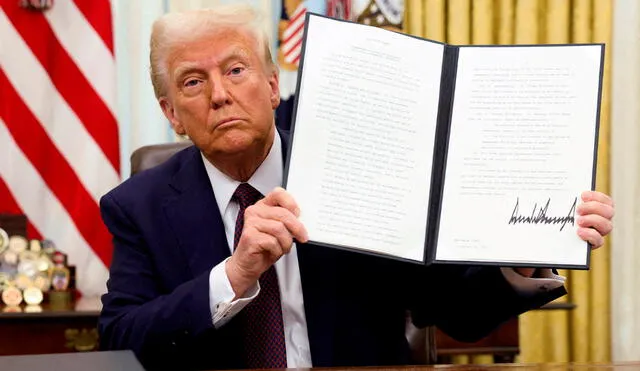Trump set to formalize English as the official language of the U.S. with executive order
The Republican leader plans to sign an executive order making English the official language of the U.S., aiming to promote unity and efficiency, though critics worry it could marginalize non-English speakers.

For the first time in nearly 250 years of American legacy, English may become the official language of the nation. President Donald Trump is preparing to sign an executive decree that would designate English as the official dialect, a move that would also rescind the mandate issued by Bill Clinton requiring federal agencies to provide assistance to non-English speakers. This order comes as part of Trump’s broader nationalist agenda, following other controversial actions aimed at symbolically reinforcing U.S. identity.
The United States has never had the primary form of communication recognized nationally, reflecting the country's long history of immigration and linguistic diversity. The new mandate could impact how government bureaus interact with multilingual communities, although it would still allow non-native services in certain situations. This shift has sparked debate, with supporters advocating for unity and efficiency, while critics warn it could marginalize immigrant groups.
Why is Trump prioritizing English in federal operations now?
Donald Trump’s decision to make English the primary form of dialogue in central divisions is part of a broader effort to reshape national policies. A White House summary states that the order plans to “promote unity, establish efficiency in the government, and provide a pathway to civic engagement.” It will also overturn a directive from former President Bill Clinton that required units receiving public funding to offer facilities in multiple languages.
Evaluators argue that the variation could exclude immigrant communities, given the widespread use of Spanish and other idioms across the U.S. Trump has previously voiced frustration over multilingualism, stating at the Conservative Political Action Conference, “We have languages coming into our country… that nobody in this country has ever heard of. It’s a very horrible thing.” While the order does not ban translations outright, it could significantly reduce their availability.
Is this executive order part of a larger trend?
In recent years, efforts to make English the primary language in public institutions have increased. Around 30 states have already passed laws supporting this idea, with some, like Mississippi and New Hampshire, demanding schools to teach only in English. This shift has sparked ongoing discussions about lexicon, cultural adaptation, and the role of English in daily life.
Trump’s order could speed up this movement, encouraging more regions to follow suit. Supporters believe it strengthens national identity, while critics argue it may limit opportunities for non-English speakers. As more zones consider similar policies, the debate over idiom use in education and public services is likely to continue.












